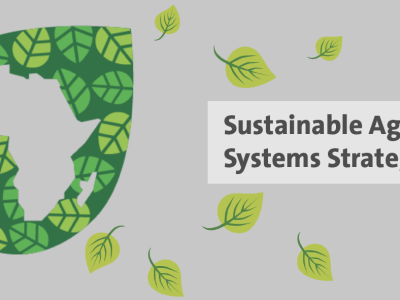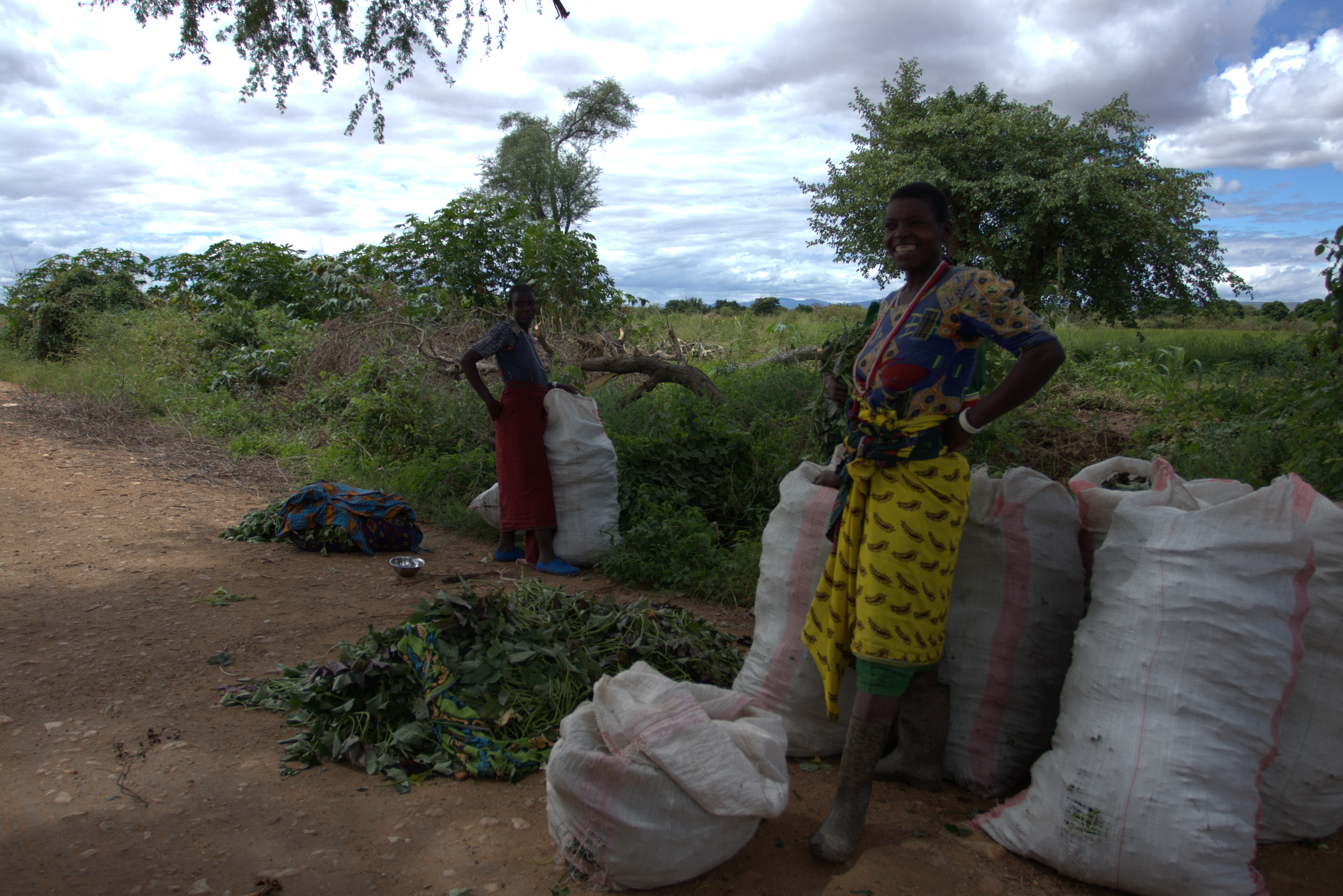
Voluntary standards and institutional innovations – the right path to sustainable and inclusive food systems?
Enabling consumers to identify products as being produced sustainably is fundamental to incentivising farmers to market their products in this way. In this article, we reflect upon what we know about efforts to link sustainable production with responsible consumption both within global value chains and within domestic markets in developing countries.
Sustainable Food Systems (SFS)–those systems that connect and support sustainable production and consumption patterns–are the foundations of the future of food and agriculture and are clearly recognised in the 2030 Agenda for Sustainable Development. Rather than talking about one, singular global food system, we refer to many systems–of varying sizes, made up of different types of exchanges of a range of products and services, including diverse actors–that interconnect and ensure that high quality and sustainably produced food can be consumed in a responsible way by people around the world. Together, these systems contribute to shaping what the global food system looks like and what opportunities exist for innovation.
In order to transform current food systems into SFS, a number of changes must occur that can address some of the bottlenecks in how agricultural research and production, food processing, packaging and marketing, trade and consumption practices interact. Most approaches look towards production practices as the main entry point into system change. Typically, policy-makers will provide financial incentives that could pay producers to conserve ecosystem services or alternatively fine them for unsustainable (or polluting) practices. Often, these types of incentives are sector or commodity focused and don’t address the intersections in systems that are necessary for sustainable agriculture to take hold. Indeed, there is a suite of knowledge, practices, technologies and organisational arrangements that must be mobilised in order for farmers to be able to ensure that they are producing sustainably and that they are able to sustain their livelihoods through the sale of their products.
Enabling consumers to identify products as being produced sustainably is fundamental to incentivising farmers to market their products in this way. In this short article, we reflect upon what we know about efforts to link sustainable production with responsible consumption both within global value chains and within domestic markets in developing countries.
Voluntary standards as a tool for global value chains
Since the 1980s, voluntary standards have increasingly been used by civil society organisations, private companies and governments to encourage sustainable production practices by linking consumer demand and branded products to the supply of sustainably produced products. These standards provide rules for production, processing and sometimes trade, and seek to improve the food quality, food safety and sustainability (economic, environmental and social) of agricultural value chains. This rapid expansion of the use of voluntary standards in international trade is often linked to the effects of globalisation, in particular to the World Trade Organization’s (WTO) technical barriers to trade agreement, whereby the increased control of supermarkets over global value chains is coupled with food safety scares and consumer interest in social and environmental sustainability (Busch, Loconto and Li. 2008; Reardon et al. 2003; Santacoloma 2014).
While the market for certified products is still only a small fraction of international trade in agrifood products, they are increasingly becoming important for key tropical commodities such as coffee (39%), cocoa (30%), wild catch fish (20%), palm oil (22%), tea (18%) and forest products (10%) (Potts, et al. 2014). As these markets expand, global buyers are increasingly relying upon small-scale producers to source their supply.
According to a 2014 study published by tThe Food and Agriculture Organization of the United Nations (FAO) on the impact of standards on smallholders’ access to markets, there is evidence of economies of scale in certified markets and a tendency for self-selection in these systems. This means that the farmers and exporters who have the means (financial, educational and infrastructural) to make the initial investments are the first to join voluntary standards schemes. This self-selection is strongly related to the evidence of exclusion found in standards that focus primarily on good agricultural practices and general food safety standards (FAO 2014).
There is evidence of increased rural employment in certified value chains (Maertens and Swinnen 2012), and the literature suggests that this may be caused by a shift from smallholder agriculture to employed labour on certified farms. For example, with the increased global demand for certified tea due to significant public commitments made by leading tea blenders (e.g., Lipton, Tetley, Twinings, Sara Lee), employment opportunities in certified plantations can create valuable jobs in rural areas if employment programmes are sensitive to the gendered conditions of labour (Loconto 2015). However, the linkage between certified on-farm employment opportunities and the decrease of certified smallholder agriculture has not been sufficiently researched and thus it is not clear how standards impact on total rural employment.
Because of economies of scale and increased vertical coordination, smallholders can access certified markets only through group certification, particularly for standards like Fair Trade where the creation of a smallholder cooperatives is a requirement for certification. In standards like the Rainforest Alliance, the Global Coffee Platform, Bonsucro, GlobalGAP and Organic agriculture, special group certification mechanisms have been developed. The desire to be included in voluntary standards schemes in order to gain access to lucrative export markets thus provides incentives for forming associations or cooperatives and for out-grower schemes through the use of contract farming arrangements (FAO 2014).
The importance of local institutions for smallholder impact
The FAO found that international voluntary standards have a positive impact on smallholder access to markets when local institutions have the capacity to support smallholder adoption of standards. This means that there is a need for 1) national and/or regional legislation that enables the creation of cooperatives and other forms of smallholder organisation, 2) national and/or regional regulations that officially recognise or facilitate a system of control and traceability for organic agriculture or good agricultural practices, 3) public policies (e.g. subsidies) that support the ecosystem services provided by sustainable agriculture or for family farmers in particular, 4) NGOs who provide support services, 5) effective extension services (both public and private), 6) a corporate or sector-wide culture that is dedicated to rural development and investment in smallholder agriculture, 7) competent local certification bodies and 8) easily accessible testing laboratories. Public and private investment in the above infrastructure, particularly in siting some of these organisations and laboratories within rural areas, can improve the effectiveness of voluntary standards and also are themselves fundamental to stimulating rural transformations.
Within this context of international voluntary standards, we see that innovations are also occurring in value chains that use sustainability standards, particularly for organic agriculture. These innovations are providing opportunities for rural transformation within developing countries as they are providing opportunities to develop local food systems that can both produce and consume sustainably produced products. Based on two empirical studies that collected data from 22 different case studies in 21 countries, there is evidence that standards can incentivise the adoption of sustainable practices when they are used to create new roles and responsibilities between value chain actors working mostly in domestic markets (FAO 2016; FAO 2017). In these cases, the use of participatory guarantee systems, which is an alternative to third-party certification, has enabled small-scale farmers to create innovative market arrangements directly with consumers who live in the same socio-economic region. We also found that there are about 22 different market channels used in these initiatives that link small-scale producers with small-scale processors, retailers, and consumers. These alternative market channels are facilitating new ways of organising value chains that are based on inclusiveness, short food supply chains and community embeddedness.
Insights from institutional innovations
From our research, we found that a wide range of actors in developing countries are inventing new forms of interaction and organisation to supply local markets with sustainable agricultural products. This is what we mean when we use the term ‘institutional innovation’. Institutional innovations are the new rules and forms of interaction that help actors from civil society, the private sector and even civil servants to redefine sustainable practices for the local level and bring together food systems actors that have not traditionally worked together.
In our 2016 book, we identified three types of innovations from the 15 case studies that deserve particular attention by policy makers. These are: participatory guarantee systems, multi-actor innovation platforms and community-supported agriculture. Each of these mechanisms was originally developed for a specific purpose, but the actors were able to strategically mobilise their knowledge and resources to be able to create local SFS that reached beyond their initial purpose. The point here is that each case is fundamentally different in what the local actors were able to do to create markets for sustainable products.
One important point to add is that while local markets are the focus of most initiatives, all cases are also selling some of their products in domestic, regional or international markets through a diversity of value chains. This supports food systems arguments against focusing on singular value chains in development interventions as this approach is limited in its effectiveness if we are looking to affect food system change.
Even when innovations are led by private actors, partnerships with public actors and civil society have an important role in creating linkages between farmers and markets. What we mean by this is that these innovations are not ‘private-sector’ driven in the sense that they are happening all on their own. It is precisely because there is collaboration at multiple levels (and a reallocation of roles and responsibilities) between private, public and civil society actors that these innovations have been able to endure over time and effect real changes in the rules about sustainable agriculture.
Overall, we have found that autonomy, reciprocity and recognition of the diverse types of knowledge fostered through institutional innovations (and to some extent voluntary standards) all serve as incentives for producers to adopt and adapt sustainable practices. In sum, social and institutional innovations are as essential as technological innovations in transitions to sustainable food systems, and they require policy support.
References
Busch, Lawrence, Allison Loconto, and Xueshi Li. 2008. “New Technologies, Standards, and Local Food Resources.” in Proceedings of the Third Afrasian International Symposium “Resources under Stress: Sustainability of the Local Community in Asia and Africa, 23-24 February 2008, edited by Yoshio Kawamura, Hisashi Nakamura, Shiro Sato, Aysun Uyar, and Shinya Ishizaka. Kyoto, Japan: Afrasian Centre for Peace and Development Studies, Ryukoku University and Center for Southeast Asian Studies, Kyoto University.
FAO. 2014. Impact of international voluntary standards on smallholders’ market participation in developing countries: A review of the literature. Rome: Food and Agriculture Organization of the United Nations.
— (Ed.). 2016. Innovative markets for sustainable agriculture: How innovations in market institutions encourage sustainable agriculture in developing countries. Rome: Food and Agriculture Organization of the United Nations and Institut National de la Recherche Agronomique.
— (Ed.). 2017. Constructing markets for agroecology. An analysis of diverse options for marketing products from agroecology. Rome: Food and Agriculture Organization of the United Nations.
Loconto, Allison. 2015. “Can Certified-Tea Value Chains Deliver Gender Equality in Tanzania?” Feminist Economics 21(3):191-215.
Maertens, M., and J. F. M. Swinnen. 2012. “Gender and Modern Supply Chains in Developing Countries.” Journal of Development Studies 48(10):1412-30.
Reardon, Thomas, C. Peter Timmer, Christopher B. Barrett, and Julio Berdegue. 2003. “The Rise of Supermarkets in Africa, Asia, and Latin America.” American Journal of Agricultural Economics 85(5):1140-46.
Santacoloma, Pilar. 2014. “Nexus between public and private food standards: main issues and perspectives.” Pp. 11-24 in Voluntary Standards for Sustainable Food Systems: Challenges and Opportunities. A Workshop of the FAO/UNEP Programme on Sustainable Food Systems, edited by Alexandre Meybeck and Suzanne Redfern. Rome, Italy: Food and Agriculture Organization of the United Nations and United Nations Environment Program.
About the authors
Allison Loconto (corresponding author) is Chargée de recherche, Institut National de la Recherche Agronomique (INRA), and Visiting Scientist, Food and Agriculture Organization of the United Nations (FAO).
Anne-Sophie Poisot is Project Coordinator, Farmer Field Schools Global Program, Food and Agriculture Organization of the United Nations (FAO).
Pilar Santacoloma is Agri-food Systems Officer, Sub-regional Office for Meso-America, Food and Agriculture Organization of the United Nations (FAO).
Read the full magazine issue





